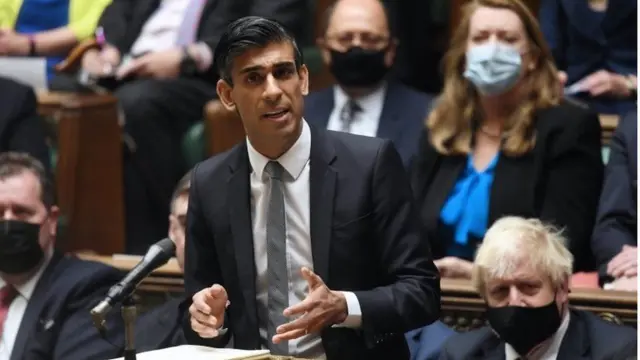Watch: The key Budget announcements in 126 secondspublished at 08:42 BST 28 October 2021
Missed yesterday's Budget?
You can catch up with the key points in just over two minutes here:
Headlines of Rishi Sunak's 2021 Budget in 126 seconds
On Wednesday, the chancellor committed to spending increases worth £150bn over three years
He pledged nearly £2bn to help schools in England catch up from Covid, £5.9bn to tackle NHS backlogs and £7bn for transport projects
But Rishi Sunak's budget is likely to leave middle earners worse off next year, the Institute for Fiscal Studies think tank says
Labour accuses the chancellor of failing to tackle the "cost of living crisis" and criticises a tax cut for banks
Responding to concerns over price rises, he says he does not have a "magic wand" to make these issues disappear
Shadow business secretary Ed Miliband says the Tories have presided over 11 years of wage stagnation, low growth and falling living standards
Economic growth is forecast to rise to 6.3% next year - higher than previously predicted - but it will then slow to 1.3% by 2023
Edited by Hamish Mackay
Missed yesterday's Budget?
You can catch up with the key points in just over two minutes here:
Headlines of Rishi Sunak's 2021 Budget in 126 seconds
 Faisal Islam
Faisal Islam
BBC Economics Editor
Rishi Sunak might liken himself to a reluctant taxman, but his strategic decision has been to spend at the same time as keeping borrowing down, so taxation has taken the hit.
There are four big figures that tell the broad story here.
A significant spike in inflation to higher than 4%, and set to last a year or so, partly reflects rising energy and fuel prices.
Taxation as a proportion of the economy at 36.2% is at its highest level since the 1950s Labour Atlee government.
Spending as a proportion of the economy, at nearly 42%, is at its highest sustained level since the 1970s.
The really good news is that unemployment is now forecast to peak at 5.2%.
To be clear, this would have been scarcely believable 18 months ago and is the best measure of the pandemic economic rescue plan's success.
 Image source, Getty Images
Image source, Getty ImagesHouseholds will pay £3,000 more tax a year as a result of measures introduced since Boris Johnson came to power, including Wednesday's Budget, says the Resolution Foundation.
The think tank says policies announced by Chancellor Rishi Sunak have boosted incomes by 2.8% for the poorest fifth of households - but households on middle incomes will take a 2% hit.
It also says the UK is in the worst decade for pay growth since the 1930s.
"The chancellor yesterday got his first chance to set out what the UK's post-pandemic economy might look like by the mid-2020s," says Torsten Bell, chief executive of the Resolution Foundation.
"It is not the high-wage economy envisaged by the prime minister last month, or even the lower-tax economy that Rishi Sunak said was his goal yesterday. Instead, the chancellor has set out plans for a new high-tax, big-state economy."
 Image source, Reuters
Image source, ReutersYesterday, Rishi Sunak unveiled the contents of his third Budget since becoming chancellor
In it, he committed to spending increases of £150bn over three years.
This included nearly £2bn to help schools in England catch up following coronavirus, £6bn to tackle NHS backlogs and £7bn for transport projects.
Sunak also used his Budget to repeat pre-announced measures, including an end to the public sector pay freeze and an increase to the National Living Wage from £8.91 per hour to £9.50.
But what else was announced? Here is a summary of the main points.
It’s the morning after Chancellor Rishi Sunak revealed his vision for a post-Covid economy - with big spending plans for transport, health and education.
Sunak’s third Budget included a real-terms rise in funding for every government department.
And a lot of that will be paid for through taxes - which are climbing to their highest level as a percentage of GDP since the 1950s.
If you missed the announcement, catch up with all the key points here.
We’ll bring you all the latest reaction and analysis - and explain what it means for your money throughout the day.